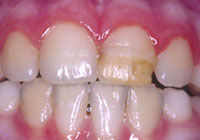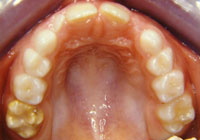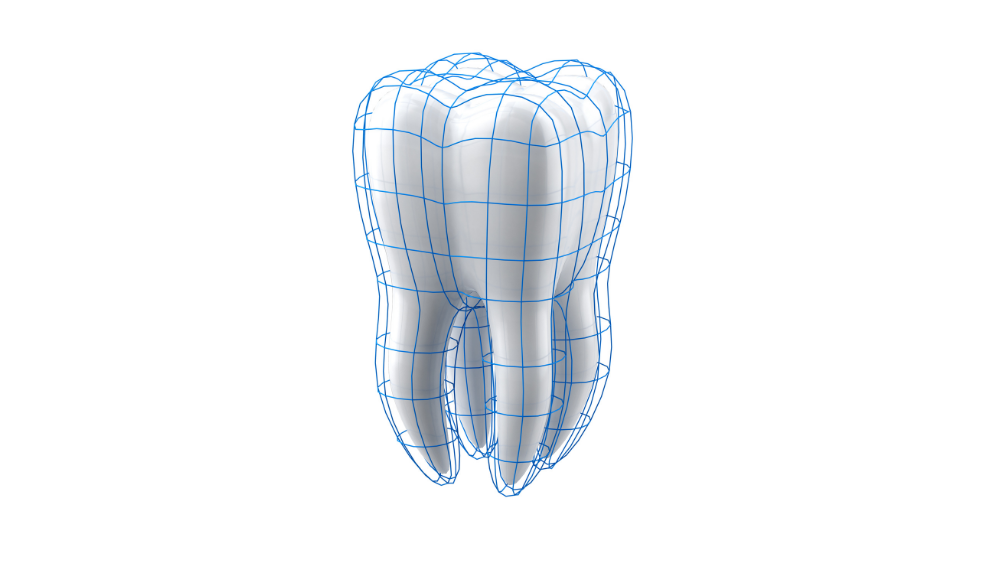There’s a well-known link between coeliac disease and developmental tooth enamel defects (though this might be better known by your gastroenterologist than your dentist!).
What is tooth enamel?
Tooth enamel is the visible, outermost covering of your teeth. The colour of healthy enamel varies from light yellow to a grey or blue-like white. It’s the hardest substance in the human body and contains a high percentage of minerals.
What is a developmental tooth enamel defect?
Sometimes called enamel hypoplasia, a developmental tooth enamel defect means that the tooth comes out of the gum with inadequate (thin or weak) enamel. This can affect both your baby teeth and permanent teeth. Teeth with this condition look off-colour or patchy. They may be pitted or ridged. There’s an increased risk of developing cavities or tooth sensitivity when the enamel is inadequate.



Is it more common in children than adults?
If you have active, untreated coeliac disease when your permanent teeth are developing (generally before seven years of age), they may not develop properly. If your coeliac disease first develops in adulthood, your teeth are less likely to be affected. This might explain why developmental enamel defects appear to be more common in children with coeliac disease than in adults with coeliac disease.
How does coeliac disease cause enamel problems?
No one knows for sure. It’s possible that the immune system itself damages the teeth as they develop. It’s also possible that the nutrient deficiencies caused by the characteristic damage to the small intestine are to blame.
Note: there are also many non-coeliac related causes of developmental tooth enamel defects.
Can I fix my tooth enamel?
Unfortunately, this type of damage is permanent. That’s why it’s so important for children with coeliac disease to be diagnosed as early as possible. The sooner coeliac children start the gluten-free diet, the less impact the condition should have on their teeth.
How else can coeliac disease affect my teeth?
As well as dental enamel hypoplasia, delayed eruption of the teeth has been linked to coeliac disease.
If you have concerns about your or your children’s teeth, it’s important to make an appointment with a dentist.
If you’d like more information about coeliac disease, gluten intolerance or the gluten-free diet, feel free to get in touch or book a consultation with me.
You can also join my email list and receive my latest articles, updates & advice delivered straight to your inbox. (I send one email per month, tops).

